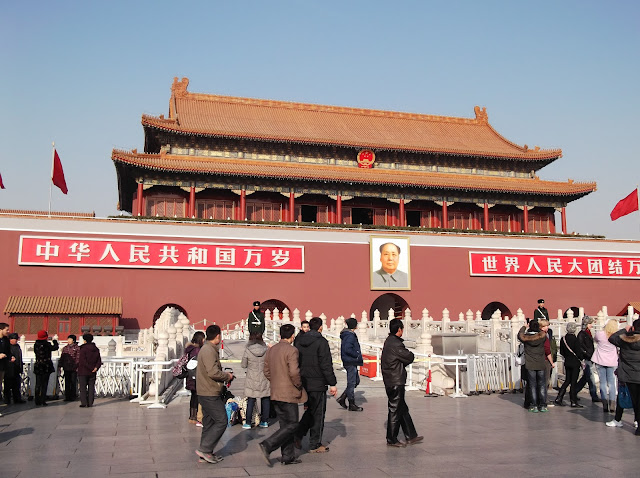As the world reaches a critical
juncture in policy and global exchange, I am thankful that I am facing it
prepared with the education I got at UC San Diego's School of Global Policy and Strategy.
I am glad for the focus on quantitative data, and for the in-depth background
I have on the Asian theater. But I am especially grateful for the advanced
language classes tailored for economic and political policy that I took - a scarce commodity in the US.
Simon Kupor wrote in the Financial
Times[1] that primarily monolingual English speakers in the US and UK are at a
fundamental disadvantage precisely because English is the language of
international exchange. He likens living in an English speaking country to
“living in a glass house… foreigners know us much better than we know
them.” He speculates that this
imbalanced communication made the US elections an easy target for Russian
hackers, and give the UK a much weaker hand in negotiating Brexit.
The implication is clear. For
regional experts and international affairs professionals, language proficiency
is not optional.
Before arriving at GPS, I studied
Japanese for a number of years. I could maintain basic conversations and
function in daily life. But I did not
have the language skills to be competent in a professional setting. At GPS Japanese classes, I learned the
expressions and style needed in giving business presentations, and I learned
how to formally debate political topics – both of which were an immense asset
during my summer internship during which I presented policy analysis to
Japanese bureaucrats. My language
classes also taught me how to write professional correspondence to colleagues,
which I do now daily in my current job.
Beyond being able to use language
in my job, I am now able to get my news from foreign publications. Reading about the American healthcare system
and the internment of Japanese Americans in Japanese magazines has been a
sobering experience. Reading government
policy papers from the Japanese government has given me a great deal of clarity
on what is going on in Japanese society now.
Language has given me a grounded
perspective on America’s role in the world, greater capacity as a researcher,
and the ability to be taken seriously by colleagues. I would not have been able
to reach this level had I not taken classes at GPS.
When deciding whether to move back
to the US to complete my Masters degree, I was concerned about whether I would
have to sacrifice my language skills that I had worked so hard for. At GPS, my
skills didn’t suffer but expanded.
[1] Kuper,
Simon. “The problem with English.” The Financial Times Magazine, January 12,
2017
https://www.ft.com/content/223af71a-d853-11e6-944b-e7eb37a6aa8e
https://www.ft.com/content/223af71a-d853-11e6-944b-e7eb37a6aa8e














